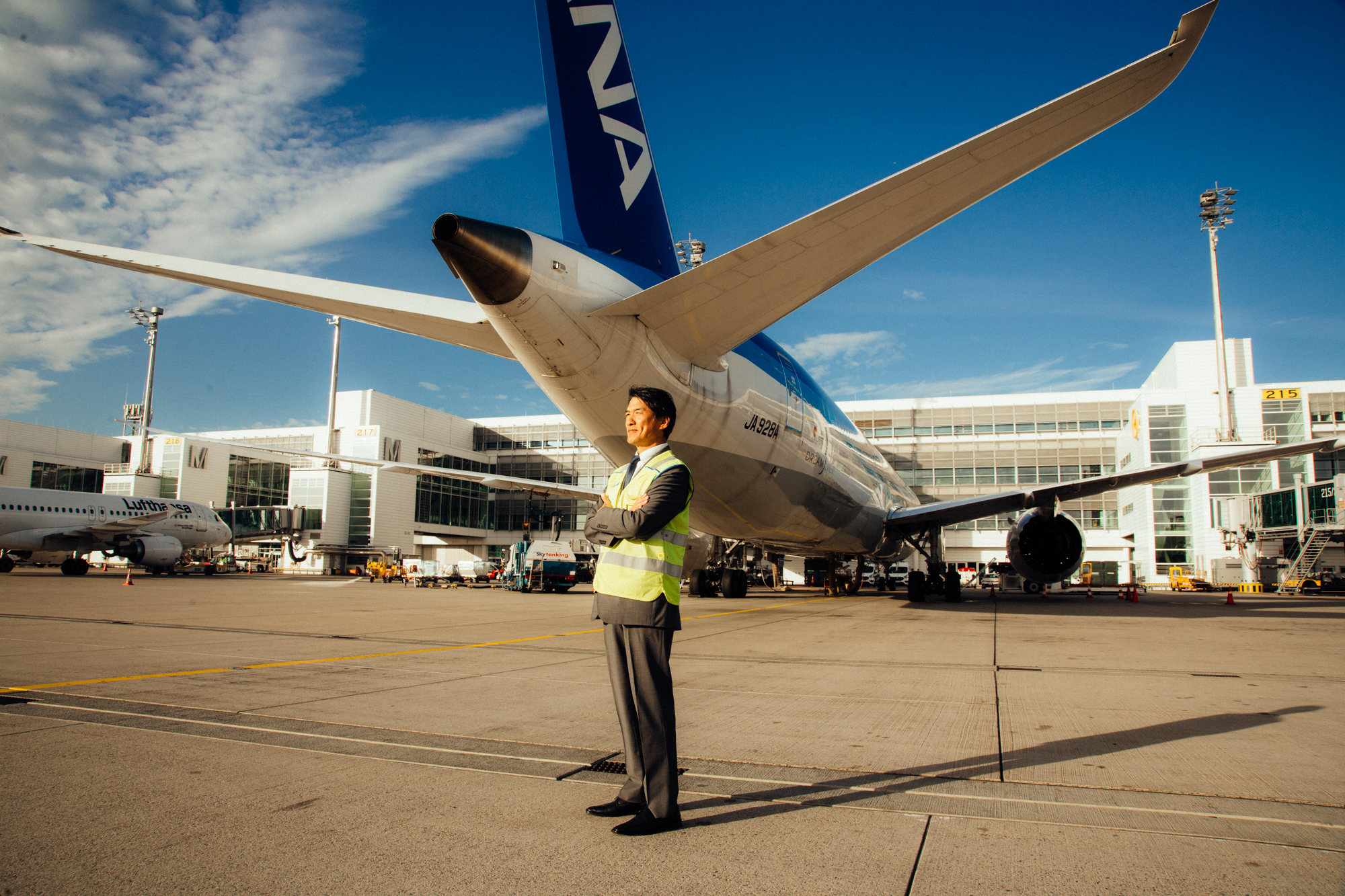UNIQLO has become one of the leading clothing brands on the planet in recent years. The Japanese company develops and sells clothing that brings together high-tech functionality and simple beauty. A concept that catches on all over the world. Also in Germany, as we found out in our interview with Yamato Kuwahara, COO of UNIQLO Germany in the company’s local headquarter in Berlin. A journey into the history and German strategy of one of the most famous contemporary Japanese consumer brands.
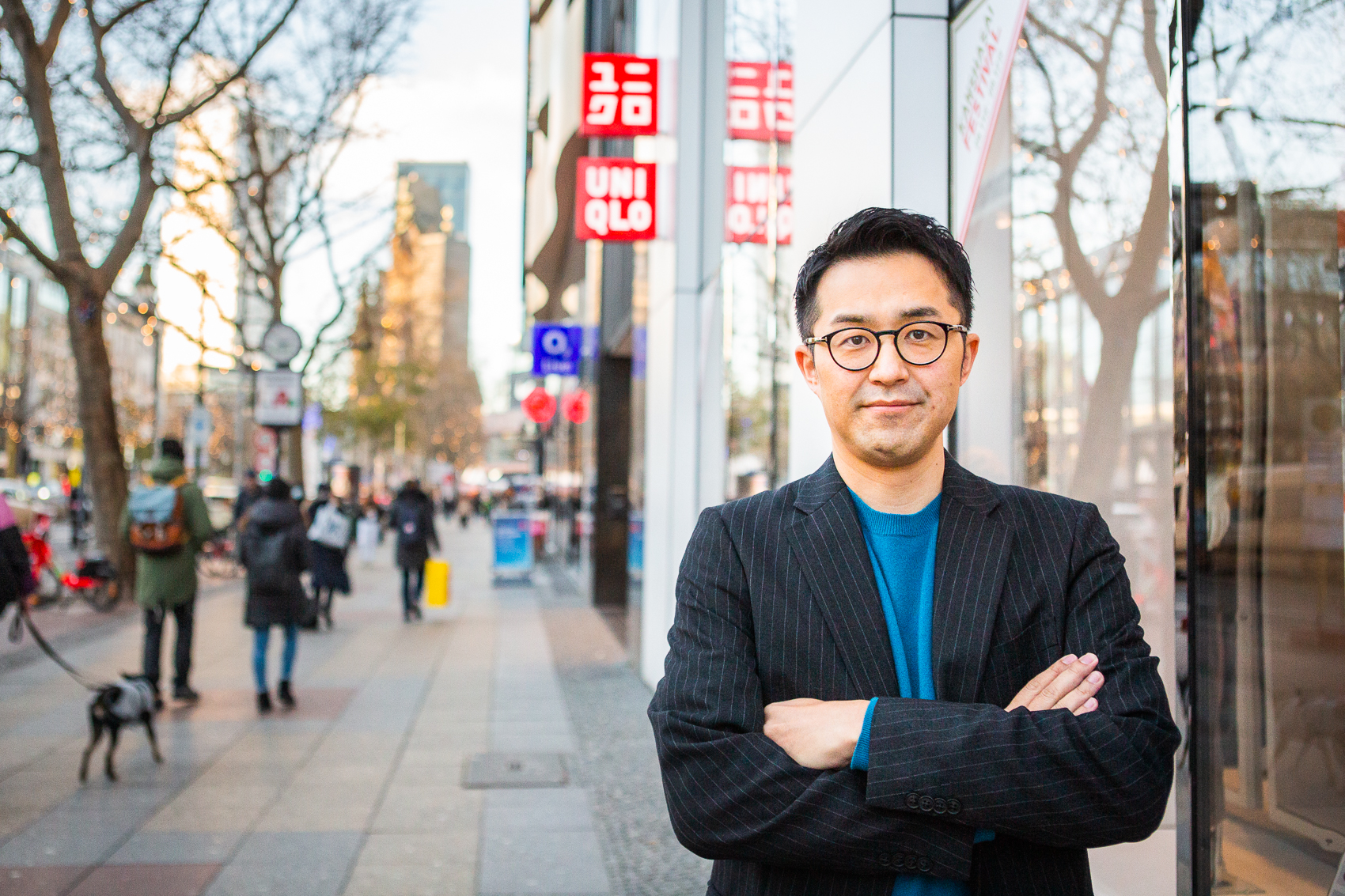
J-BIG: Thank you for your time! What can you tell us about the founding days and the ideas behind this company?
Yamato Kuwahara: As you might know, Uniqlo got started in 1984 by Tadashi Yanai. Mr. Yanai wanted customers to be able to buy clothes just as easily as books in the bookstore – without the need for an advisor. He got this idea when he visited a University Co-op in the U.S that operated that way. He was immediately convinced that this was something he wanted to try himself, and so he opened the first store in 1984 in Hiroshima. After that, he successfully expanded both the original store concept and the UNIQLO brand to other locations, first in Japan. In 2012, he created the LifeWear concept. The essense for the concept had been there since the early days of the brand and still determines the way we design clothes and the way we work together and conduct our business. The intention was and still is to make peoples’ lives better in the real world. This is our fundamental philosophy and the basis of everything we do, even as we are now expanding internationally.
J-BIG: At least at first glance, there are some competitors in Europe, mainly in the so-called “fast fashion” sector, that seem to offer a similar concept of not needing a lot of customer service, such as H&M or Zara. What sets Uniqlo apart from these competitors?
Yamato Kuwahara: I think the market and customers sometimes misunderstand UNIQLO. We do not consider ourselves to be a fast fashion retailer. As I mentioned, we rely on the LifeWear concept. This is strongly inspired by Japanese culture: We emphasize quality, innovation, longevity, and simplicity. We don’t follow seasonal trends, as most of the mentioned companies do, but try to have a design that is timeless. Something that people can wear anytime and regardless of gender. We believe this is a very unique concept, which can help to sustainably improve the lives of our customers.
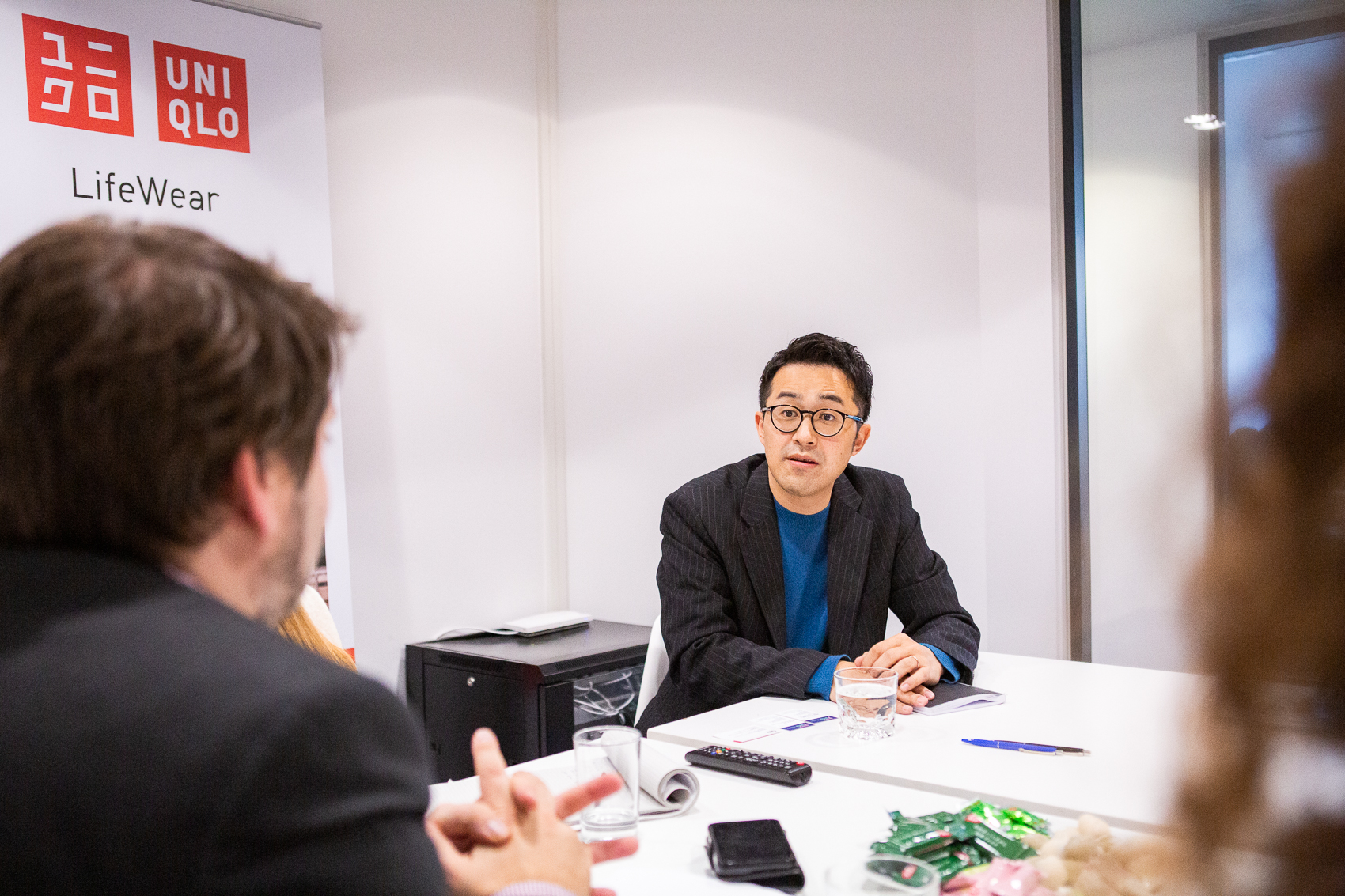
J-BIG: Tell us a bit about the first store. Why did it open in Hiroshima?
Yamato Kuwahara: Hiroshima is the closest bigger city near Tadashi Yanai’s hometown in Yamaguchi prefecture. So maybe that’s why he decided to start there. I assume Tokyo was both too far away and too big, so it would have been much more difficult to make an initial impact there.
Actually, the first store was called “Unique Clothing Warehouse” – a name that was later shortened to UNIQLO. The original name also really describes what the first store looked like: it was very unique since it looked like a warehouse. This way, people could see all the colors, sizes and prices at first glance, which was what Mr. Yanai wanted to achieve – making it as easy as possible for the customer to navigate the store and find the right item immediately.
J-BIG: Were the clothes that you sold in that first store commissioned or made by the company itself? Or did you originally sell clothes from other brands?
Yamato Kuwahara: Originally, not everything was made by us. But step by step, based on our customer’s needs, Mr. Yanai considered that it would be better to produce the clothes ourselves, both to be able to react to the customer’s demands directly and to be able to control the process and price. I think one of the turning points in terms of the expansion in Japan was the time of the brand launch in Tokyo. That was 1998 in the very trendy Tokyo district Harajuku. And at this point, we already created the majority of our items by ourselves.
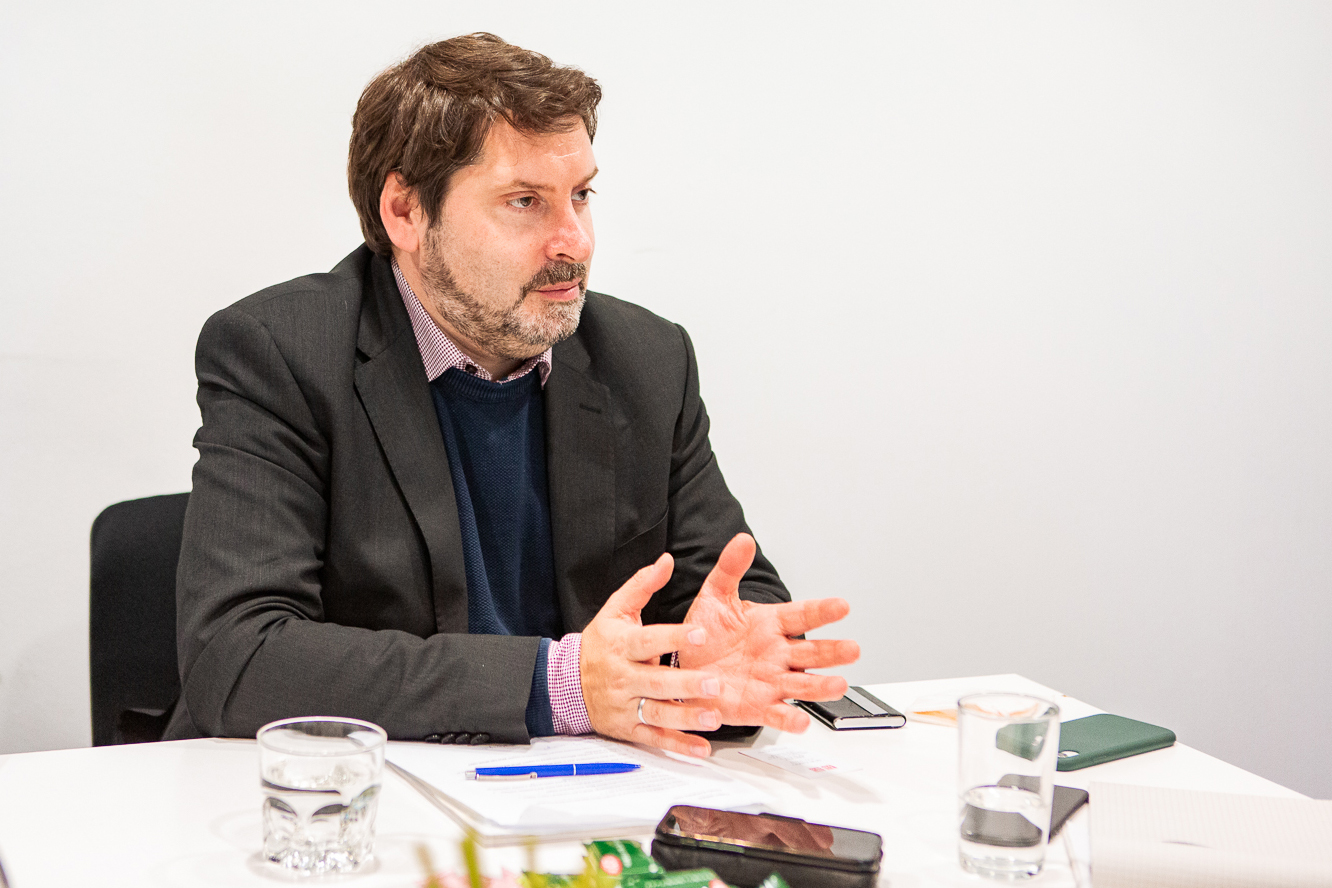
J-BIG: How is UNIQLO positioned globally today? In which markets are you active and how many people work for the company?
Yamato Kuwahara: Nowadays, we are present in 25 markets including Japan and have more than 2.300 stores globally. 120,000 people work for Fast Retailing, UNIQLO’s parent company, across the globe. In terms of stores, Japan is our biggest market with more than 800 stores, closely followed by China. Other than that, the main markets are Europe, the US and South-East Asia.
J-BIG: When did you make your first steps outside of Japan?
Yamato Kuwahara: That was when we opened our London store in 2001.
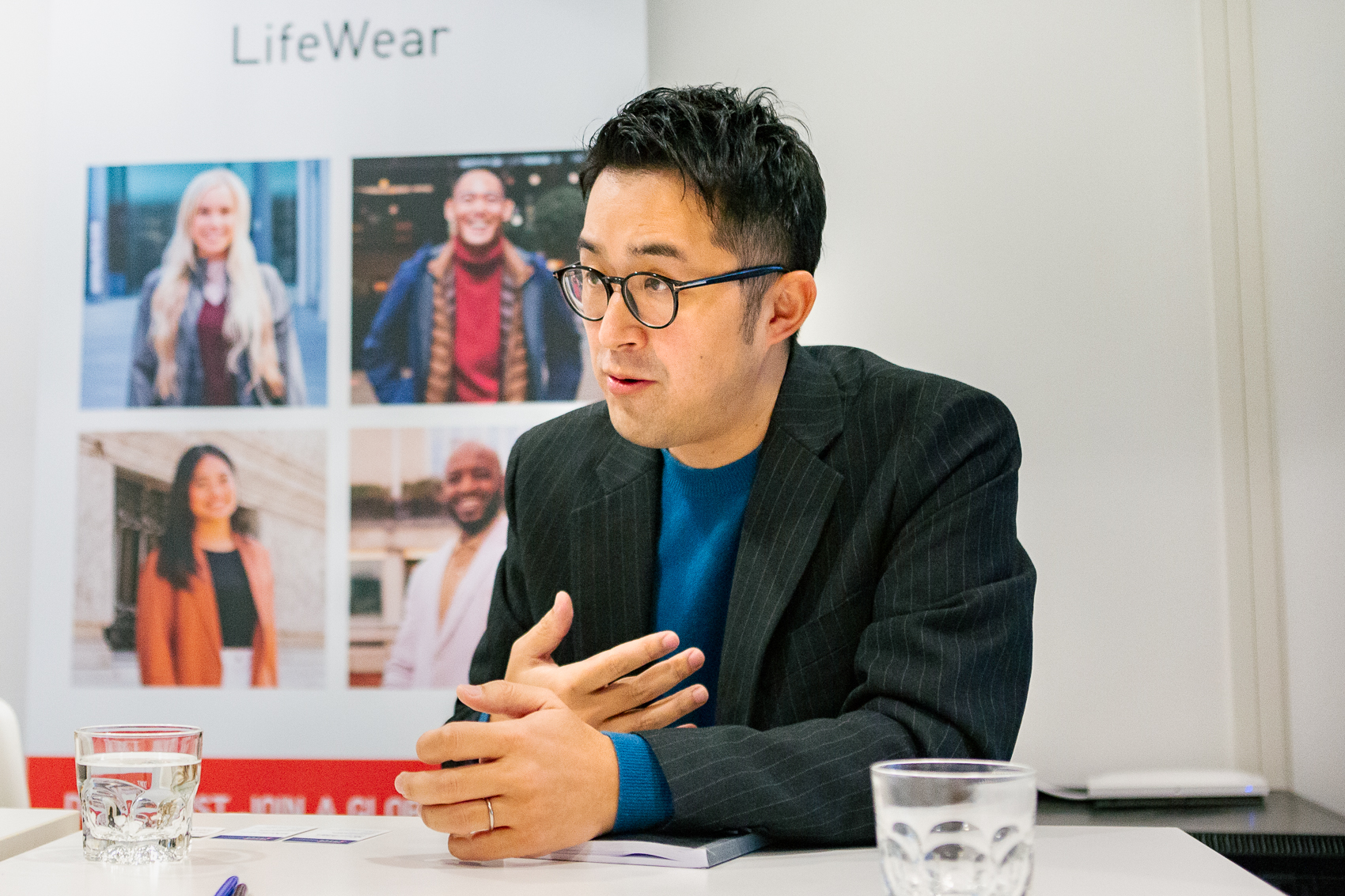
J-BIG: Why was a European metropolis chosen as the first overseas market?
Yamato Kuwahara: Mr. Yanai was certain that it was absolutely key to have success in the international arena as soon as possible. London, of course, is known in Europe and beyond as a fashion hotspot. So that’s why we chose this city as our first international location. However, this endeavor did not start out very successfully, unfortunately. We expanded way too quickly to several locations, without really looking at the customers’ demand. We ended up having to decrease the number of stores again. The learning was that, even though we believe our concept is strong, we need to consider how it matches with the local markets.
J-BIG: When did you first move into Germany?
Yamato Kuwahara: Our first store in Germany opened in 2014 in Berlin, Tauentzienstraße, which is still our flagship store. After that, we expanded step by step, and now, we have 10 stores in Germany: Six in Berlin and one store each in Stuttgart, Köln, Düsseldorf, and, most recently, Hamburg.
Free Subscription
“J-BIG – Japan Business in Germany” is the e-mail magazine dedicated to Japanese companies and their business activities in the German market.
J-BIG: So you started in Berlin, Germany’s biggest city and the capital, so that’s easy to see. But Stuttgart doesn’t necessarily seem like an obvious choice as a second location. Based on what aspects do you decide to open a store in a new city?
Yamato Kuwahara: Germany is very different from other big European countries such as the United Kingdom or France. Those are very centralized – in England, there’s London, in France, Paris, and these are the clear centers. In Germany, however, there are many bigger or middle-sized cities. This is pretty similar to Japan, actually. There, you also don’t only have Tokyo but also Hiroshima, Sapporo, Osaka, and others. Honestly speaking, the reason Stuttgart was the second city came down to the fact that we found a good location there. We knew we wanted to go there eventually anyways, and sometimes it just comes down to good timing.
J-BIG: So the last 20 years have been impressive looking at the international expansion of UNIQLO. You have been with the company for 20 years yourself. Can you tell us a bit about your journey at Uniqlo?
Yamato Kuwahara: I first joined UNIQLO as a part-time Sales Advisor when I was a university student. At that time, Uniqlo was growing rapidly, and I was very impressed with the company. I decided to join full time right after my graduation. Then I started as a store manager and later became an area manager, being responsible for seven stores at first. Afterwards, I worked in the merchandising department at the headquarter for six years, which was essentially responsible for product branding. Armed with this knowledge and experience, I wanted to return to the store and make the experience there even better. After about four years at our signature store and as a regional manager in Japan, I realized that what I was still missing was international experience, so I joined the European region, because as I mentioned, success in Europe is important in the fashion industry. I was assigned to Germany, which I was really happy about. I first started in a store here and now act as the COO for the German market.
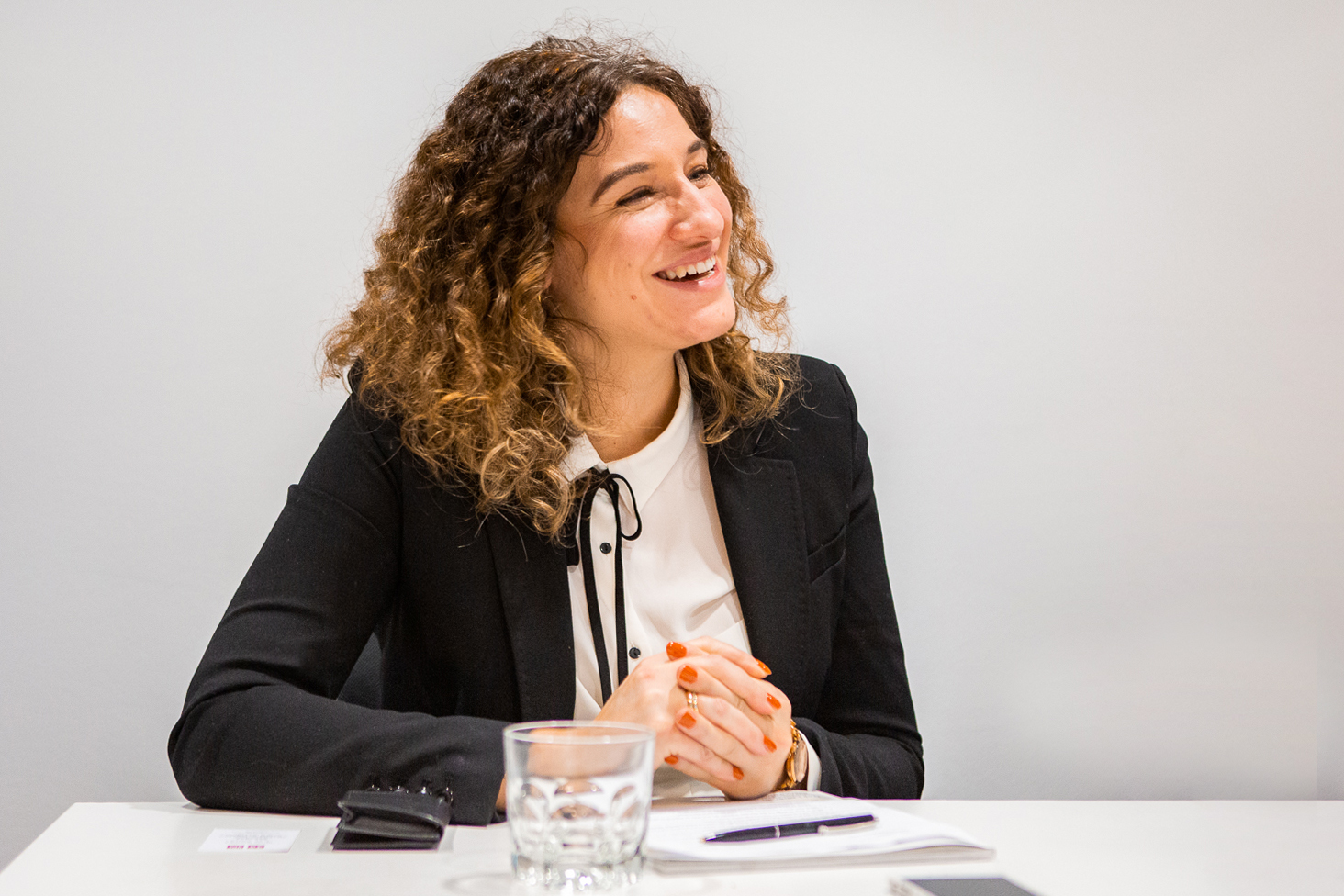
J-BIG: So you came from the headquarters to Europe. Most Japanese companies have some kind of exchange program in the company, like expatriate programs. How is the role of Japanese employees who originally come from the headquarter and start working in the overseas market?
Yamato Kuwahara: Especially when launching a new store in a new country, it is very important to have someone to make sure that the global concept – Ideas like LifeWear – are represented properly. It doesn’t matter so much whether this is a Japanese or a local person, the important thing is that we should assign a person who can bring the UNIQLO DNA into any market. Because we are still fairly young on the international stage, this person is in most cases someone from the headquarter in Japan. In the future this might change, as local people stay with the brand and internalize the UNIQLO culture. So for now, the majority of the local top management is still Japanese, but that’s not a given for the future.
The other point is about exchange between the global headquarter and the local markets overseas. There should be a good connection between the two in both directions. And to be able to work together, it is crucial to understand one another. That’s why we intentionally set up programs that not only bring Japanese employees to Europe, but the other way around, as well. As a global company, this is a very important approach for us.
“With science and our innovative technologies, we try to make our customers feel comfortable. That aspect is very important. However, we also need art or beauty.”
J-BIG: How do you keep your fashion up to date and make sure that you react to local customer demands?
Yamato Kuwahara: When it comes to our LifeWear concept, it is always about bringing together art and science. With science and our innovative technologies, we try to make our customers feel comfortable. That aspect is very important. However, we also need art or beauty. For example, people might want to have a new color. Even though the main product remains the same, we do of course work on new color options over time. So, in this sense, we research trends and follow them to a certain extent. However, we always try to judge whether something new is just a very particular, temporary fad or if it has the potential to stick around for a longer time. We generally stay clear of the first. However, we should not forget that fashion is also about having fun and expressing oneself. Each of our items should offer both functionality and beauty. That is the essence of our concept.
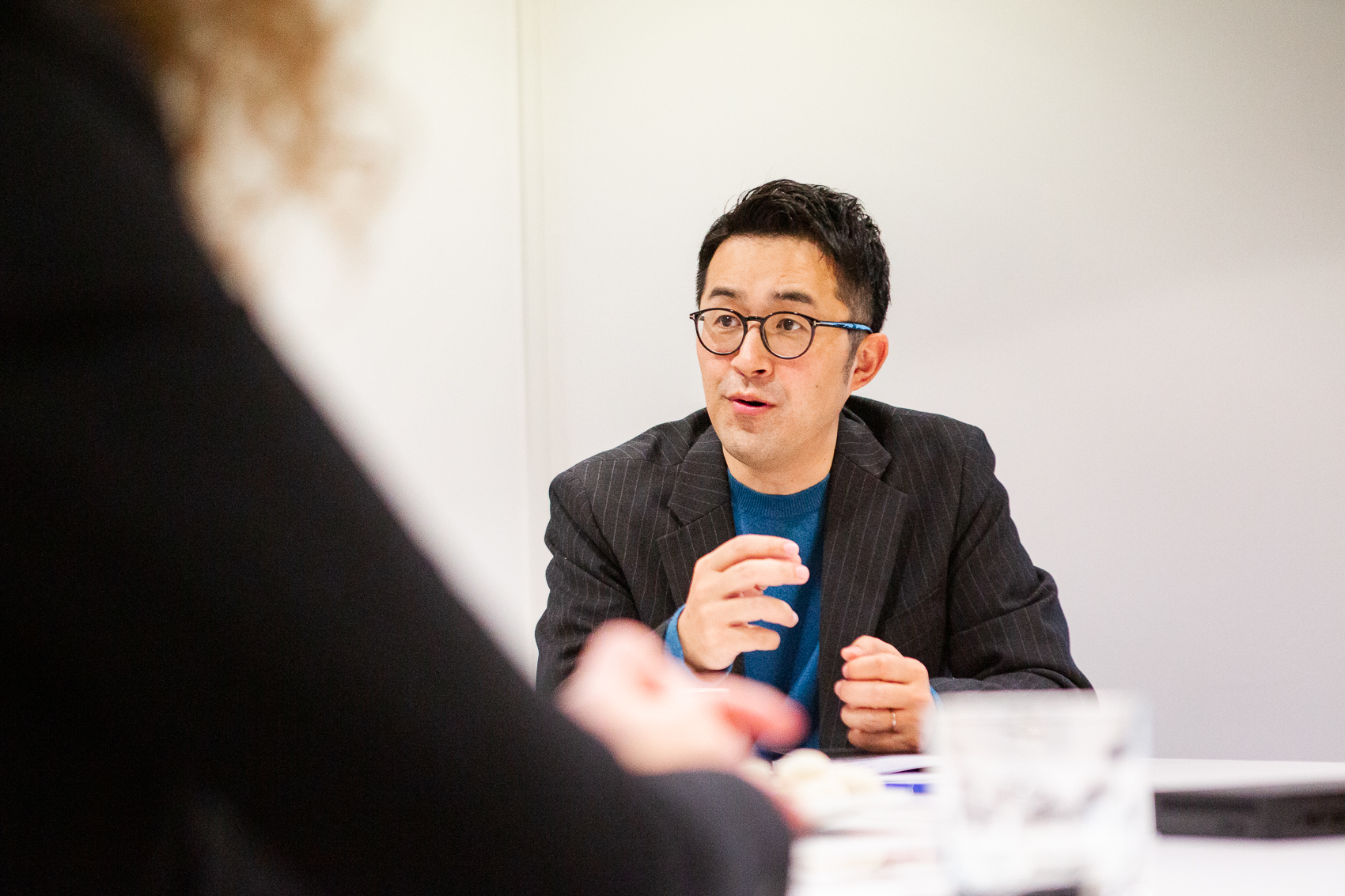
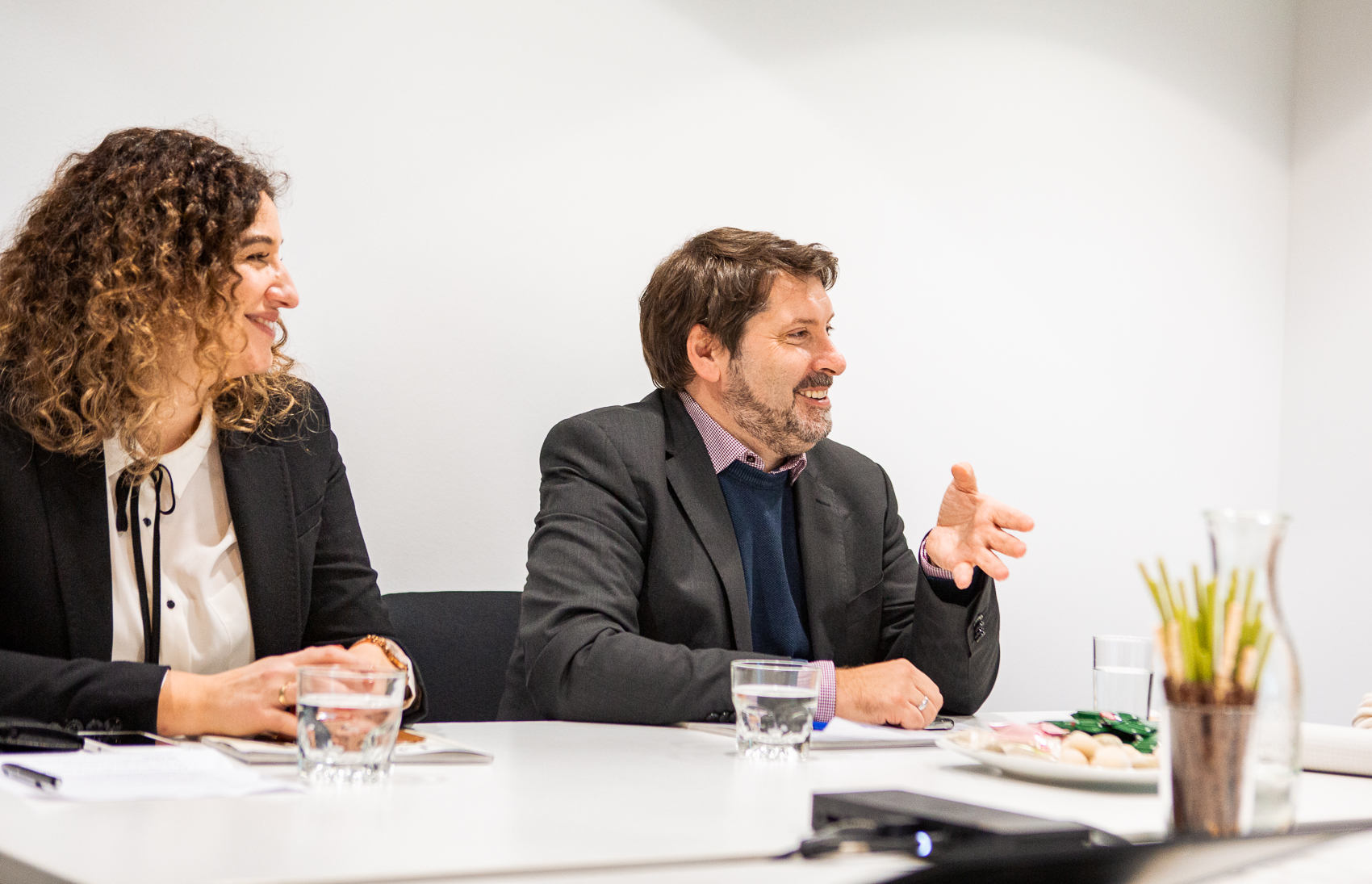
J-BIG: You mentioned using science and innovative technologies within your products. Could you name some examples?
Yamato Kuwahara: One good example for this is HEATTECH, one of our signature technologies, which is the result of a collaboration with the Japanese material technology company Toray Industries. It is a very thin fabric that nevertheless keeps the wearer warm. This gives customers more freedom in their outfit choices: They can still be stylish in the winter and keep their body warm at the same time. We started with inner wear, but we now also offer HEATTECH fleece jackets, which have been very popular last season. By doing so, people can keep warm and also be fashionable. I think combining this in our products is one of our biggest strengths. Another good example is AIRism, another of our functional materials jointly developed with Toray. Where HEATTECH keeps you warm, AIRism keeps the wearer cool and refreshed. In Japan, it is used mainly for innerwear, especially under business clothes. However, some Scandinavian countries started to use AIRism in a different way, as pajamas and lounge wear. This was not originally considered in the concept, but we thought it could be a very good approach, so we gave that feedback from Europe to the headquarter: To promote the material in Europe, we should not only use visuals with people in business clothes. These kind of feedback sessions with the headquarter happen every week and we strongly believe this is the right way forward.
J-BIG: HEATTECH or AIRism seem to act like platforms: You have a concept and based on this concept you build different products. Do you think this is beneficial for e-commerce because if people understand that you have these product lines of clothing and know how they feel and perform, they don’t need this experience in the store every time?
Yamato Kuwahara: Yes, I think that’s a really important point for customers. Once they understand and have first-hand experience with the benefit of a certain technology, they might more likely come back for more. Loyal customers are very valuable, but building this initial trust takes some time. That’s why I think it is so important to explain about our core technologies and make sure they are well-known.
J-BIG: Do you see that in countries where the winter is really cold, a product like HEATTECH is a lot more successful than AIRism and vice versa?
Yamato Kuwahara: This is a very interesting point, because common sense would dictate that this should be the case. But sometimes, it is not true. One example is South-East Asia. HEATTECH is selling very well there, and we were trying to understand why. One reason, it turns out, is that offices there are really cold because they use very strong air conditioning. Our job is to find which benefits will appeal to customers in each region, and then to explain the product accordingly
J-BIG: How has the Corona pandemic affected your business?
Yamato Kuwahara: It was certainly a tough time for us as a company. But of course, at UNIQLO, we love challenges, so we always try to stay positive even in difficult situations. So, we tried to find opportunities, and, as for many retailers, the answer was e-commerce. We found a lot of ways to improve our online business and speed up the development. We found that, if we find success on the e-commerce segment, we can reach any customer, anywhere and anytime.
But we also were strengthened in our belief that customers still need a real touchpoint. People really wanted to come, so after the first lockdown was over, many customers came back to the stores. It was a great moment, both for the customers and our staff who had been working very hard to make that return possible. So, the combination of brick and mortar stores and e-commerce is a big benefit. Compared to even just a few years ago, Germans have changed their attitudes about online shopping a lot. That gives us a bit more time to find the best location for the customer in each city – there’s no need to rush.
Talking about changes or improvements in the physical store, it is becoming more important to bring proper company information to the store. In the past, the store’s main purpose was to bring the product to the customer. Now people can get information about our products and technologies easily on the website, but those who go to the store don’t have that same access. That’s why we are trying to explain as much as possible about our core products via the stores, as well. There is still much room for improvements here, but this is a very important concept for us.
We are so convinced of the importance of these customer experiences for our future business that we decided to invest more in the training and development of our employees. So, the Corona phase brought a lot of new approaches to UNIQLO.
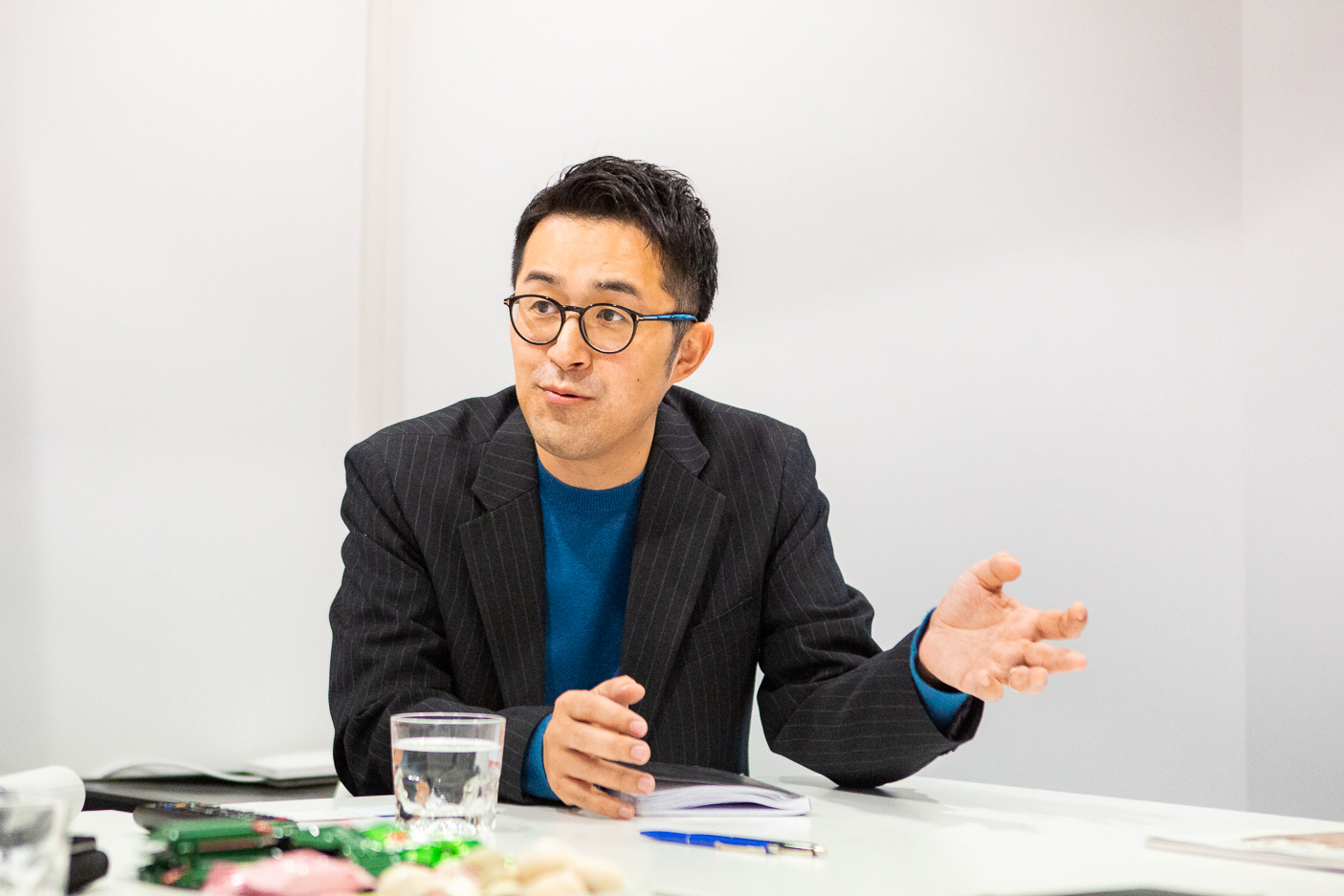
“We don’t do regional products, because we are a global company, and we think our concept is a global one, as well. We believe that if something is very popular in some area, usually it has the potential to do well globally.”
J-BIG: Can you give us a rough idea how much of your business in Germany is generated through e-commerce and how much through physical stores?
Yamato Kuwahara: I can tell you that in Europe overall, our e-commerce composition ratio is about 30 percent. Of course, that number depends on the number of stores in each country, and we always have to be careful to keep a good balance between physical and digital. In Germany, however, we are hoping to expand in both areas.
J-BIG: UNIQLO is known for its corporations with artists, designers and other brands. How do these come about? How do you decide which characters to license, for example?
Yamato Kuwahara: These decisions are normally made by the global headquarter in Japan. We don’t do regional products, because we are a global company, and we think our concept is a global one, as well. We believe that if something is very popular in some area, usually it has the potential to do well globally. Of course, when we talk about specific characters, for example, there will be big differences in terms of the quantity we sell, because the demand is different. However, we decide to license a character if we believe that it can potentially be accepted in any region.
The reason why we choose many Japanese characters is, of course, that we are proud of being a Japanese company, and we want to bring some of these beloved characters to the rest of the world, as well. But the really interesting thing is that, even when we think that something is not well-known in Europe, this can change very quickly. Take “Demon Slayer”, for example, which was really popular in Japan in 2020. When we opened our Hamburg store that same year, the T-shirts dedicated to this franchise were super popular – everyone wanted to get their hands on our “Demon Slayer” items. Sometimes, people’s demand is much quicker than we expected. That is why we try to launch as global as possible. Sometimes we can’t see the potential, and we might see some unexpected surprises. Then we feedback that to the global headquarter, and they might say: “If this was successful, maybe that will be, as well”. It’s that kind of exchange.
We also have five research and design centers around the world. One is in Tokyo, of course, and we have one in New York, one in L.A., one in Paris and one in Shanghai. And they are also always researching what could potentially be interesting for the worldwide market. So, we receive their input as well.
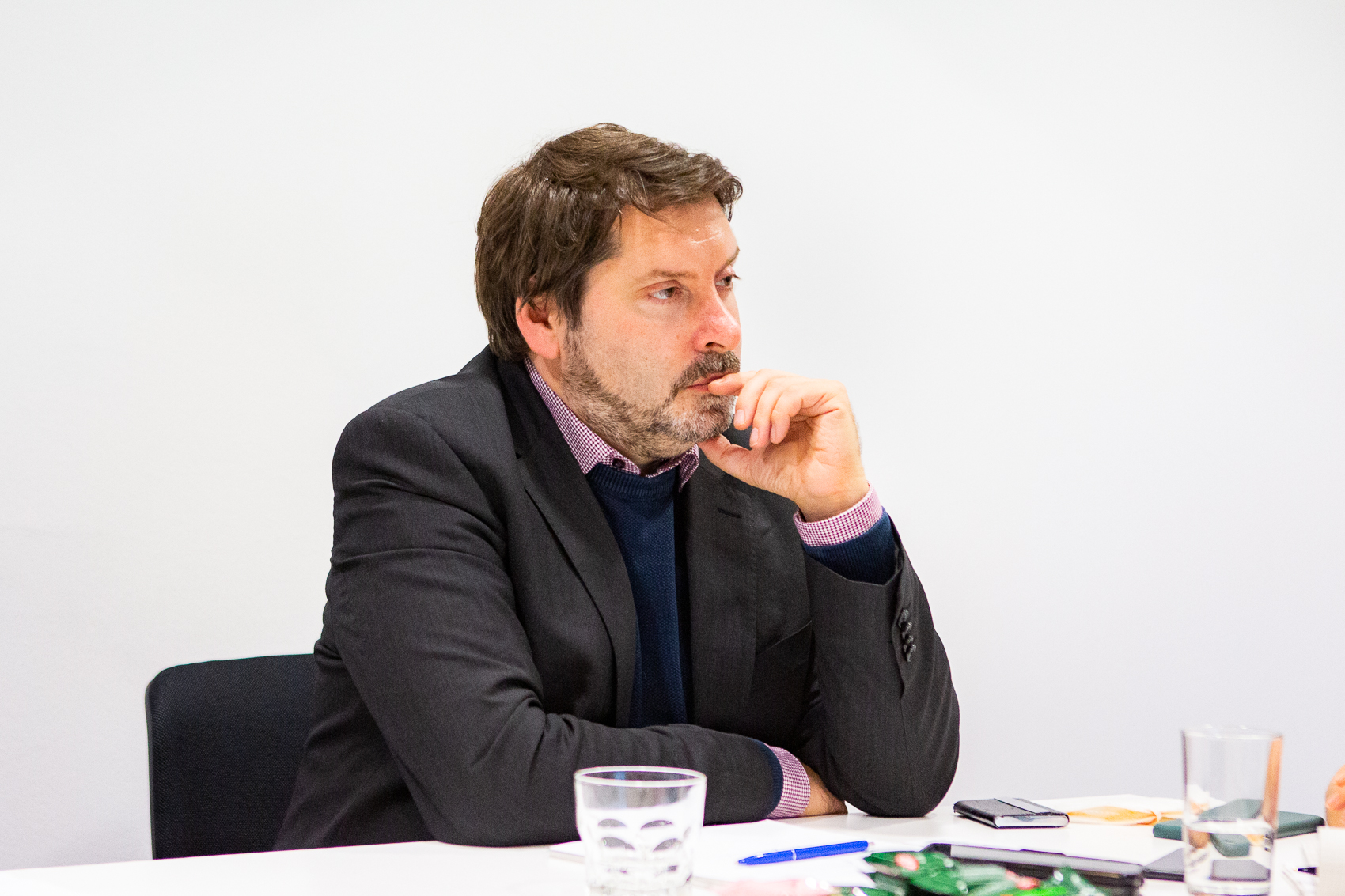
J-BIG: What do you see in Germany that is different than in other markets?
Yamato Kuwahara: There are two aspects. In terms of the popularity of outerwear products, ultra light down and other natural fabrics are very sought after. Also, Germans seem to favor clean fashion over very casual styles. This trend is similar within the European market, but the timing when sales increase is different because of temperatures. So, this is one aspect. The second aspect is connected with the LifeWear concept. As I mentioned, LifeWear is about innovative functionality and high quality, and I think Germans really like this kind of topic. Take HEATTECH, for example: In Japan, probably 99 percent of the people know this. My mother owns about 20 pieces of HEATTECH clothing. Compared to that, Europe is still very much a developing market. But within the continent, Germany is earlier to understand this functionality. People ask a lot of questions and are really interested in why they should buy this product. There is a really good fit between UNIQLO and the German market.
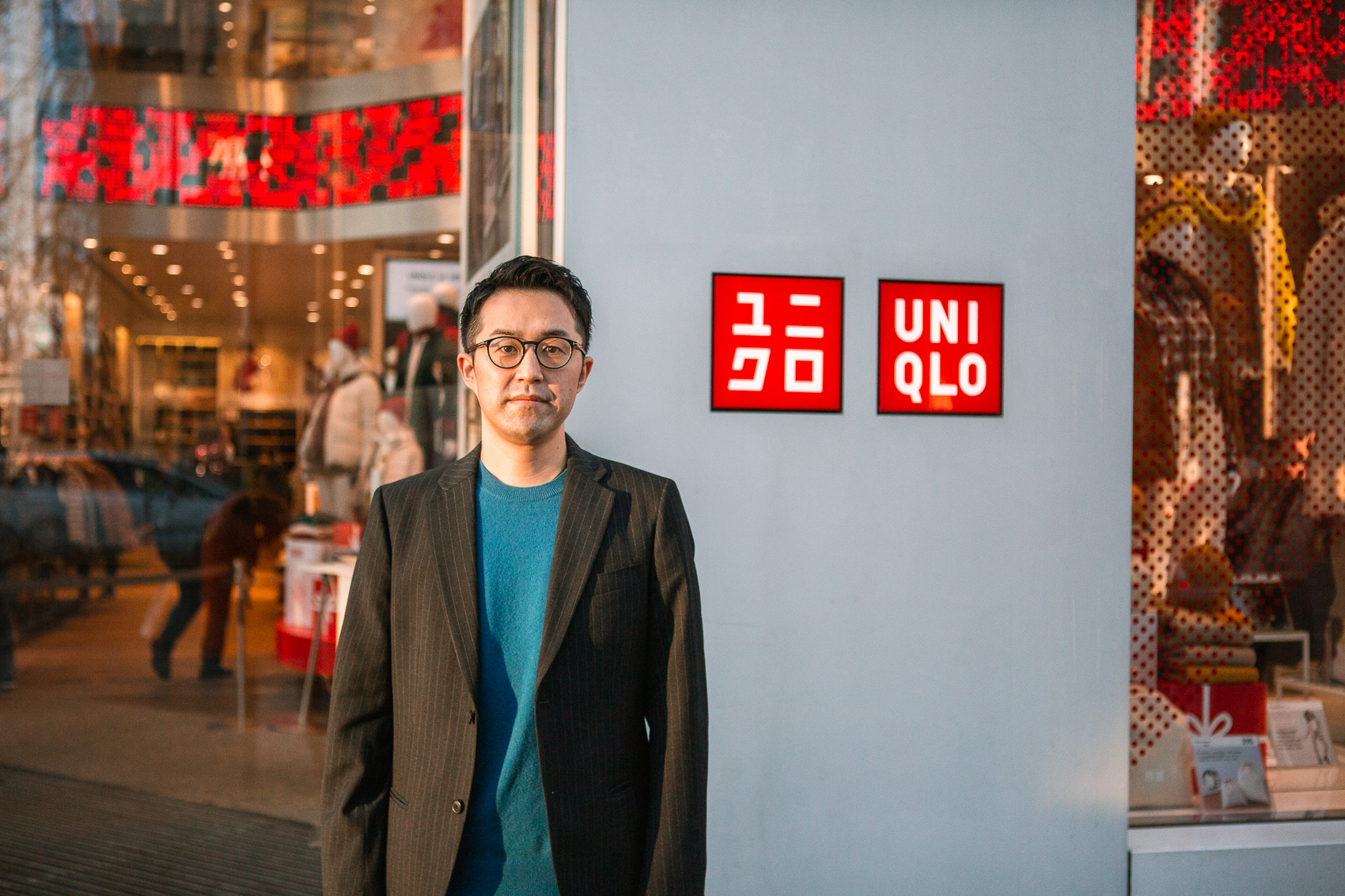
J-BIG: It’s a kind of cliché that Germans have an engineering mindset and not really a “fashion” mindset. Does this mean that your approach with innovative materials and technical fibers is actually a plus for you in the German market?
Yamato Kuwahara: I think so. German customers really want to understand the reason why they need this product, or why they should choose this brand. The functionality or our clothes and how comfortable they make the wearer are strong arguments here. So, I do think this is a clear benefit for the German customer. However, I don’t think that the general customer doesn’t have any sense of fashion – don’t sell yourself short! Being fashionable or attractive with your outfit is something that is important to anyone. “Practical beauty” is the key term here, and that is also a concept we followed when opening the Hamburg store.
J-BIG: Do you see any other cultural fit between the Japanese and the German mindset?
Yamato Kuwahara: Yes, indeed. Germany and Japan have a lot in common. Both appreciate innovative products, as well as longevity and craftsmanship. This kind of mindset is widespread in both Germany and Japan. Also, the working style: In general, this is totally different in Japan and Europe. But coming to Germany, I found it quite easy to adapt because people’s minds about how to work right is very similar. So that’s why I think that a lot of things are very similar. Germany and UNIQLO clearly are a great fit for the future.



